A Strange City 3, 2021
137 × 210mm, 312page
ISBN: 979-11-970333-4-6
Buy Now
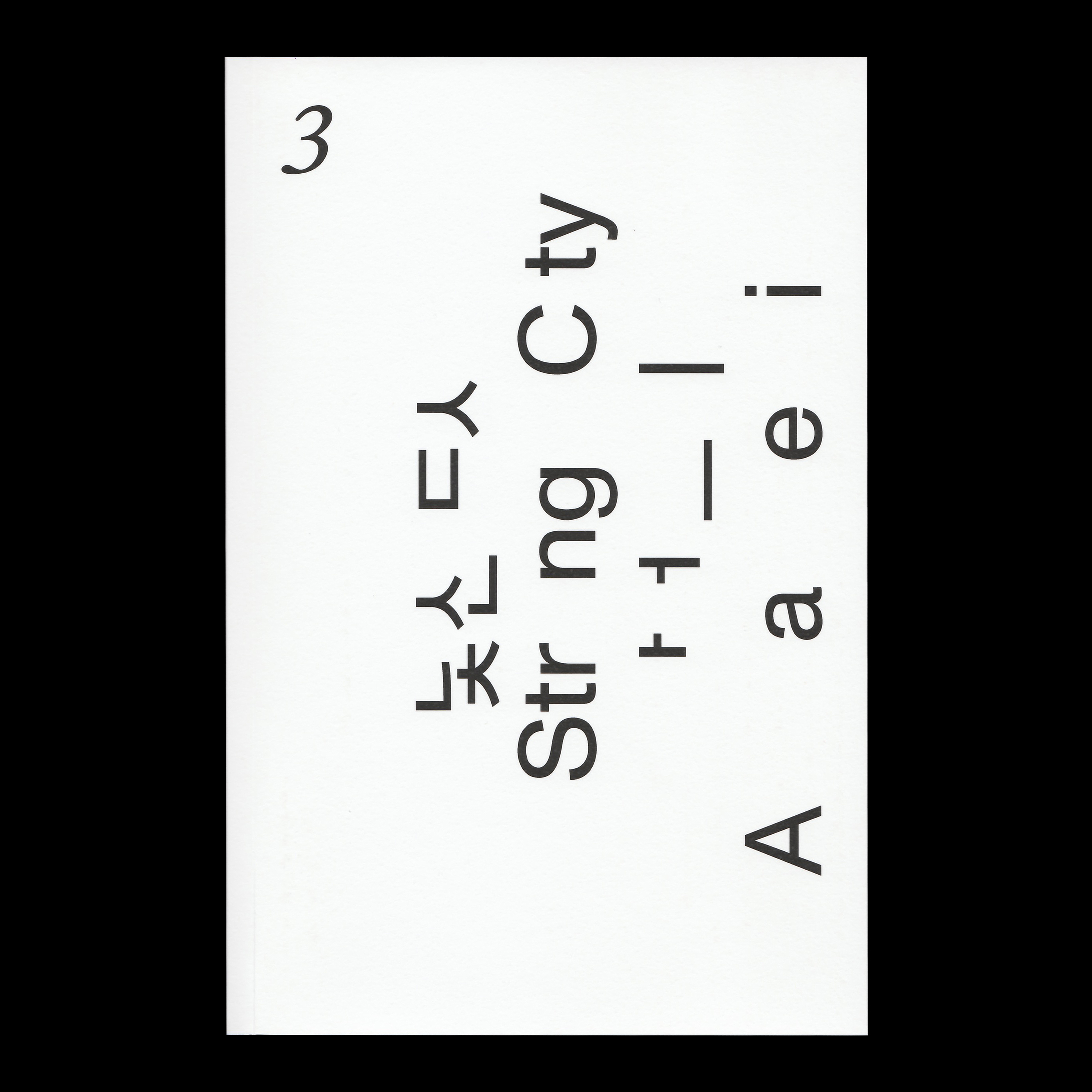
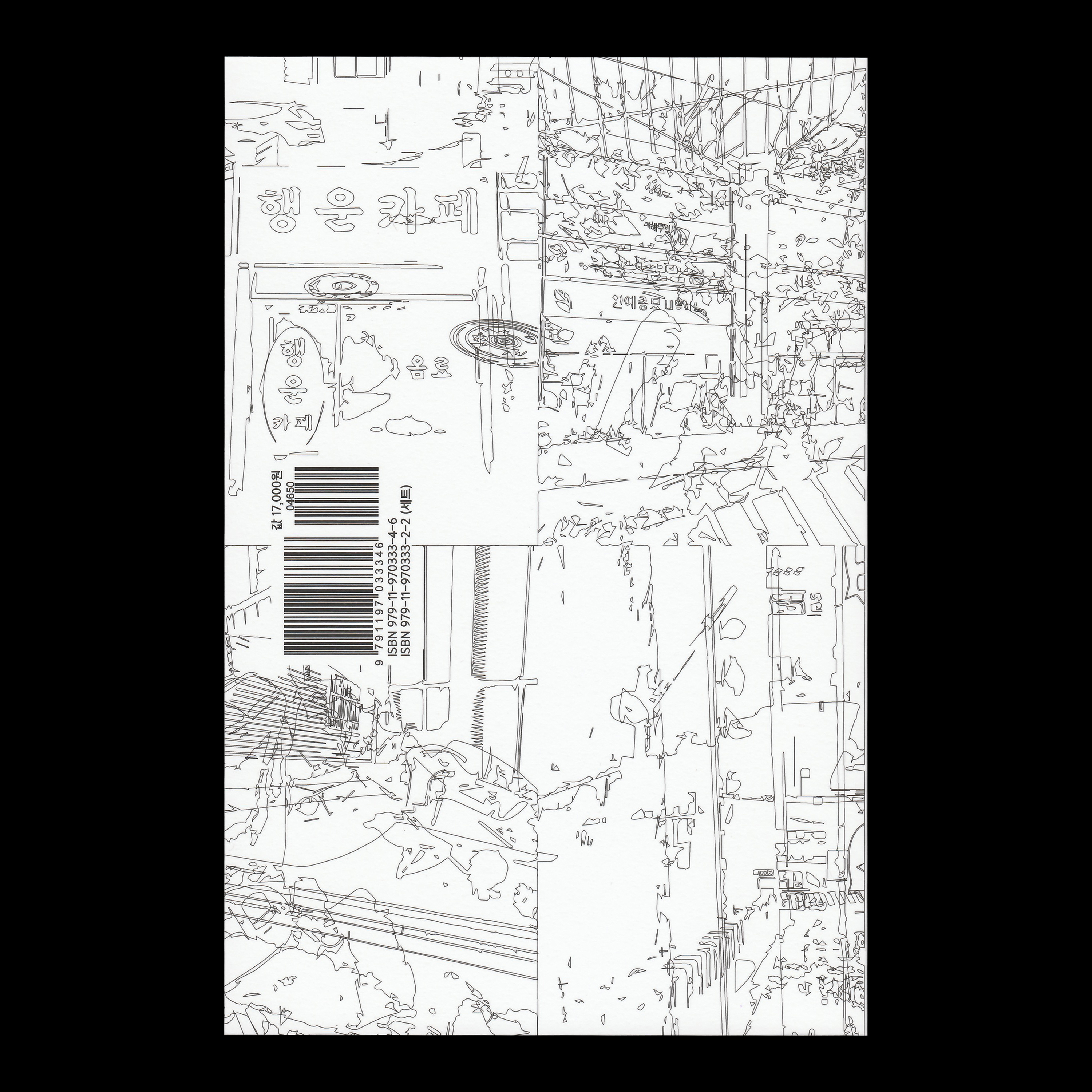
Book Cover (Front / Back)︎︎︎
Participaints
Ji Ho Kwon, Sun Woo Gill, Dong Young Kim, Jun Hui Kim, Sung Eun Moon, Seul Gi Shin, Han Byul Lee, Mi Sun Choi
Due to the COVID-19, which became serious around this time last year, we lined up in front of the pharmacy to get masks for a while. Without exception, I checked the location of nearby pharmacies and went to a few places to buy a mask. Each time there were two interesting things, and the first was that the font of the word 'medicine' on the signboard of the pharmacy was so diverse. And the second was the announcement posted in front of the entrance, such as 'with mask' or 'out of stock’. It was handwritten in a hurry or printed in dry gothic typeface. Whatever the intention was originally, it was interesting to me that it was kind of like a 'pharmacy's own voice', and that it was all different.
Meanwhile, in 1947, French novelist and poet Raymond Queneau published his book, Exercices de style. This book contains a very short notation that the main character got on and off the S-line bus at rush hour and reached the Roman Square two hours later, into 99 different styles. For example, 'En partie double(Double Entry)', 'Rétrograde(Retrograde)', ‘Suprises(Surprises)’, and ‘L’arc-en-ciel (The Rainbow)'. Also, in the 1970s and 1980s, American cartographer Denis Wood worked with his students to conduct a 'Unmapped Map-making Project'. He gathered all the results together and compiled them into a book called Everything Sings in 2010. The project features a map of a small neighborhood in Boylan Heights, North Carolina, including 'Squirrel Road', 'Puddle of Light', 'The Journey of the Newspaper', 'Jack O’Lantern' and 'The Wailing Dog'.
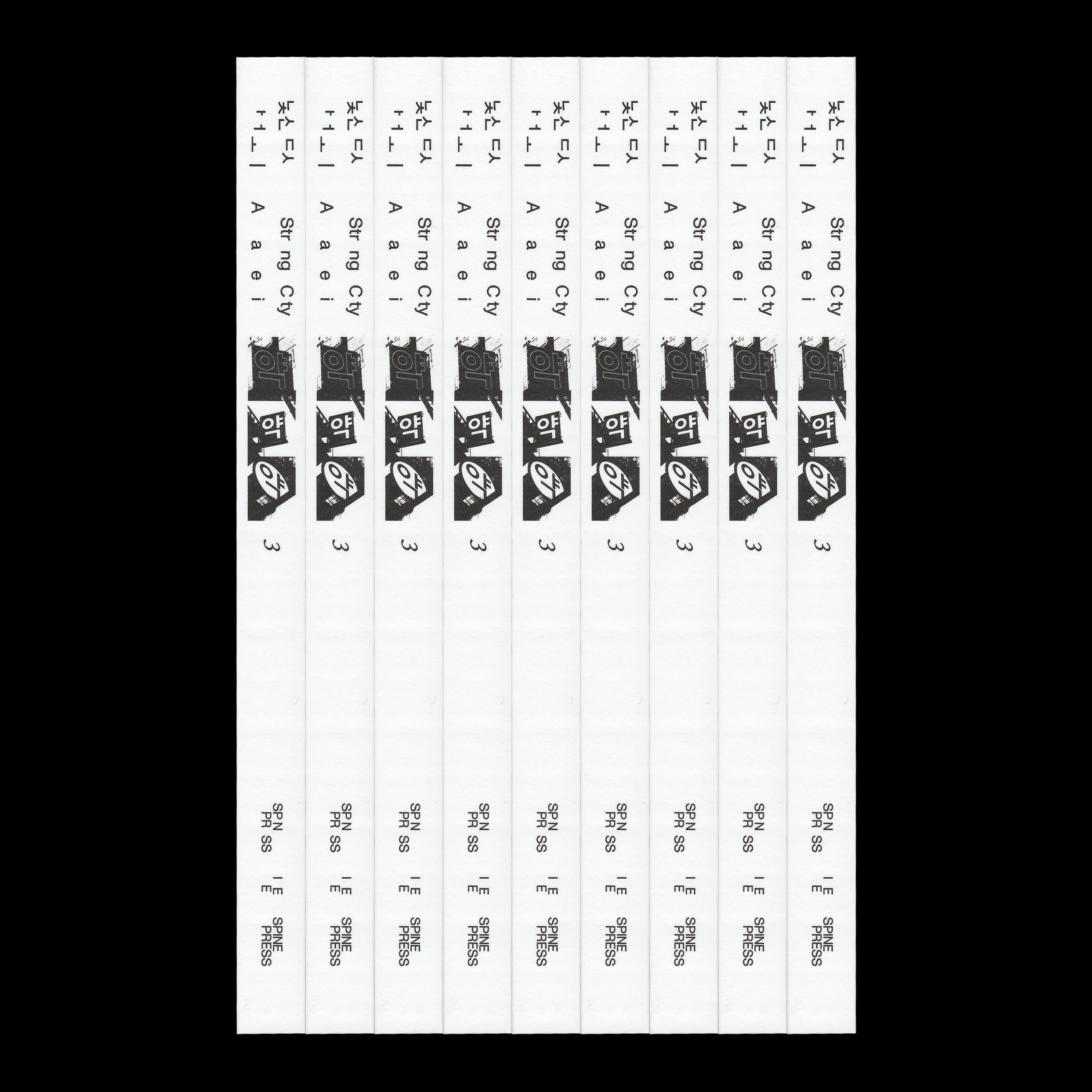
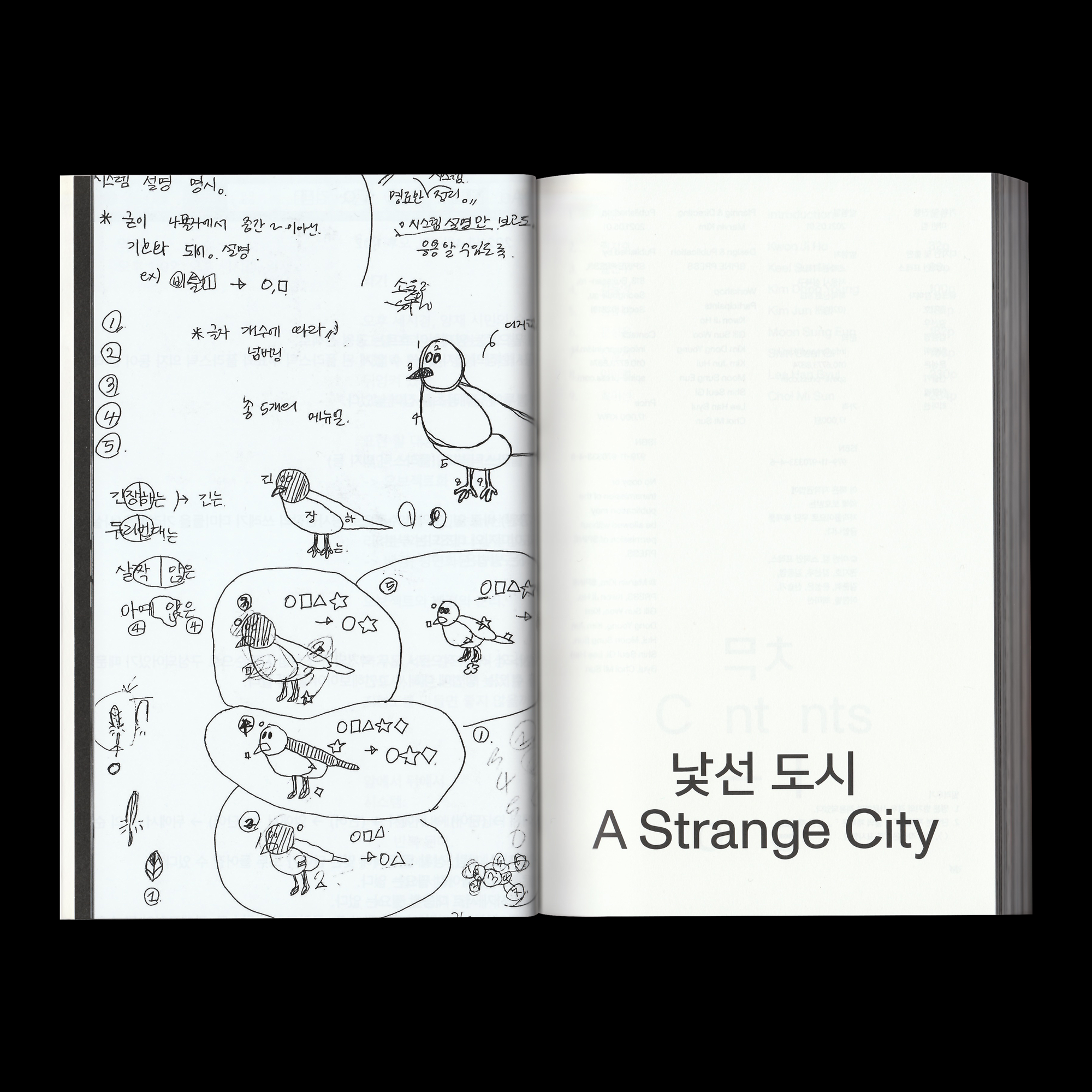
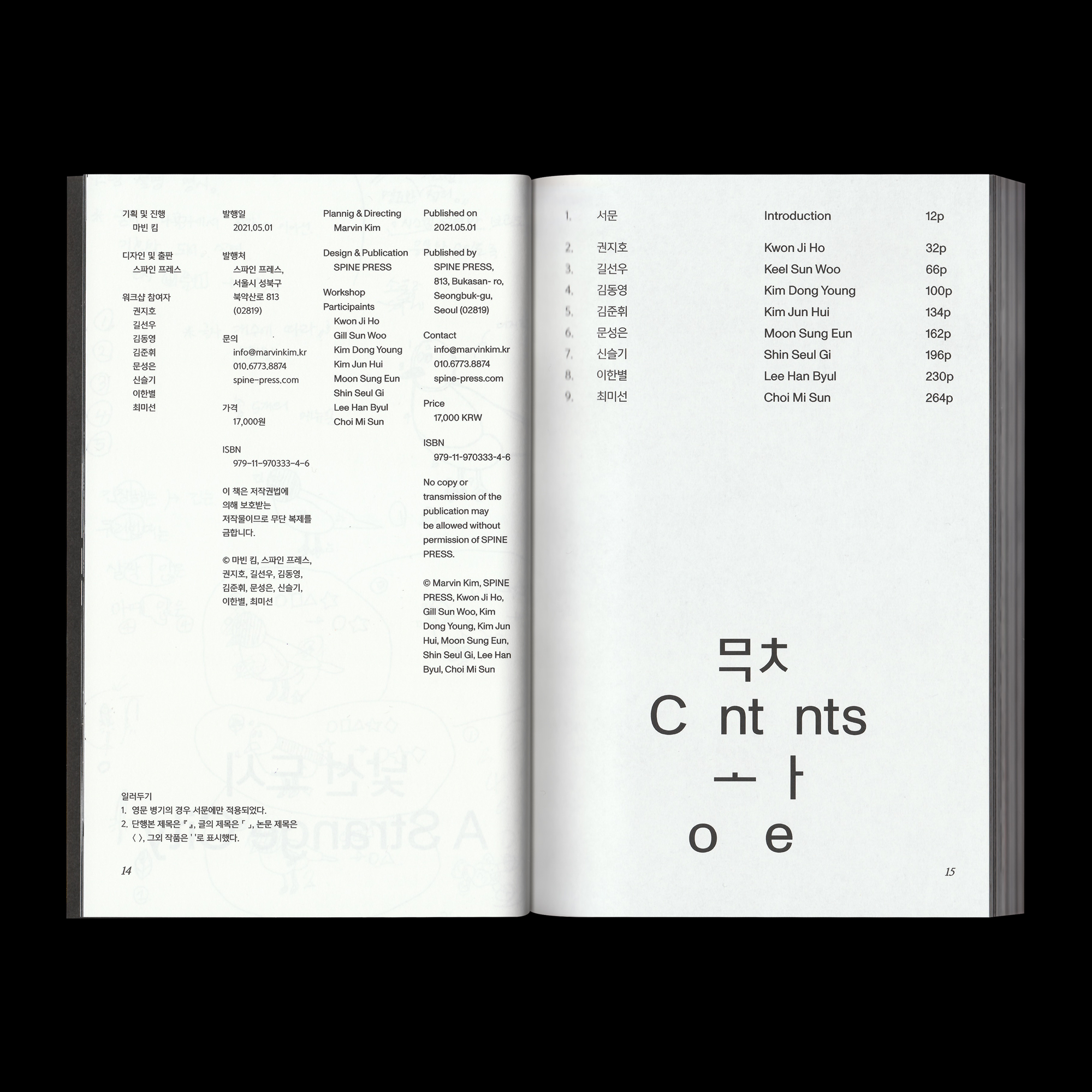
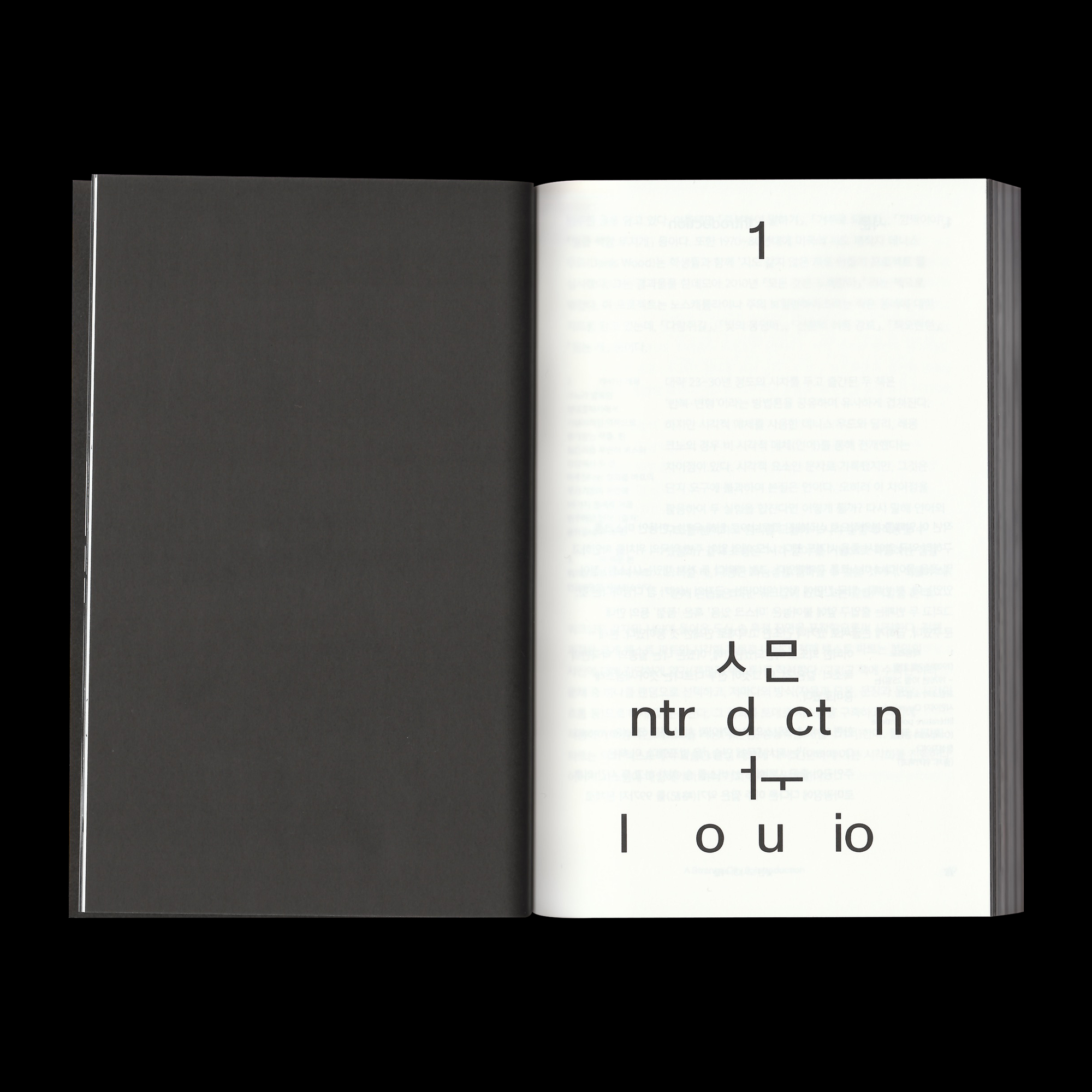
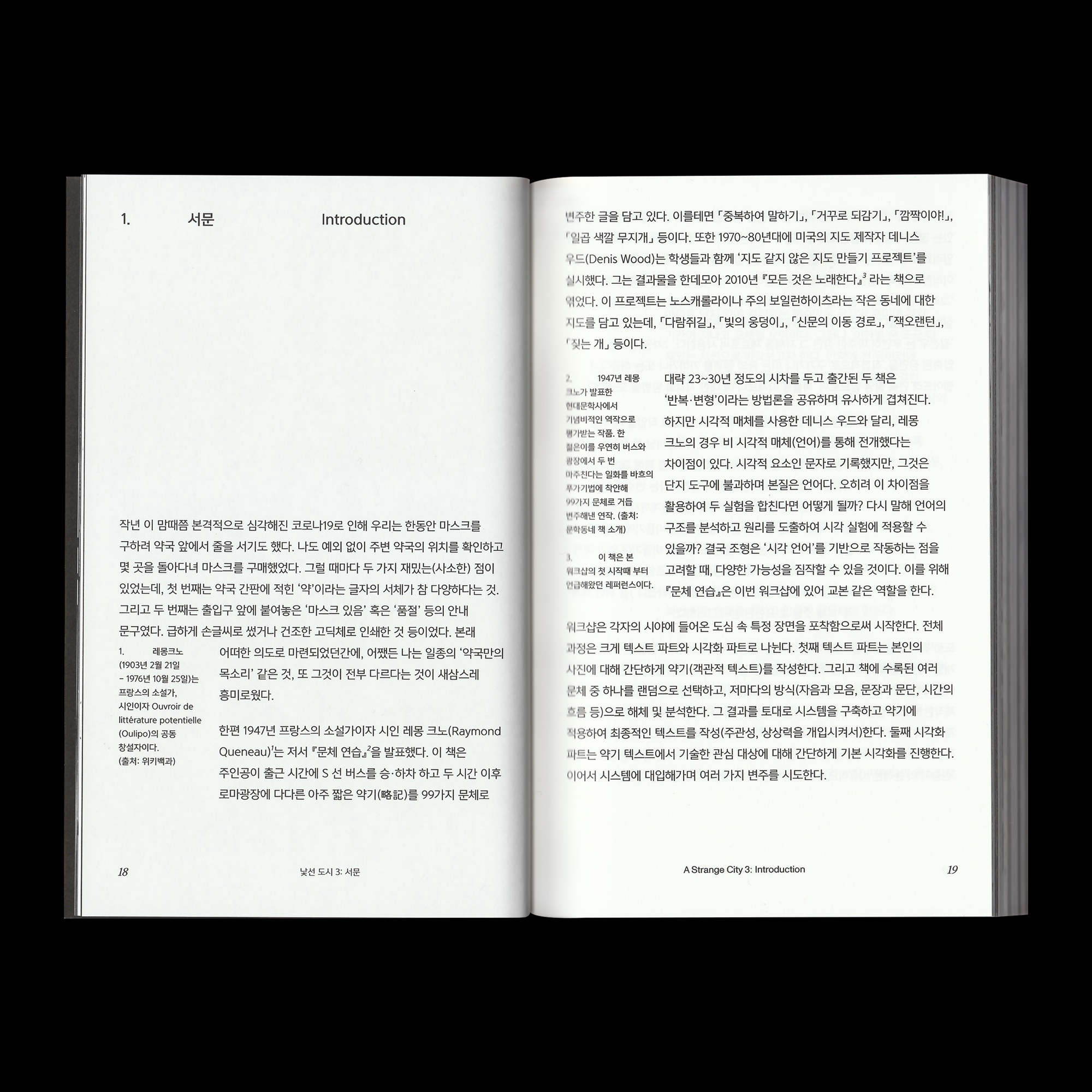
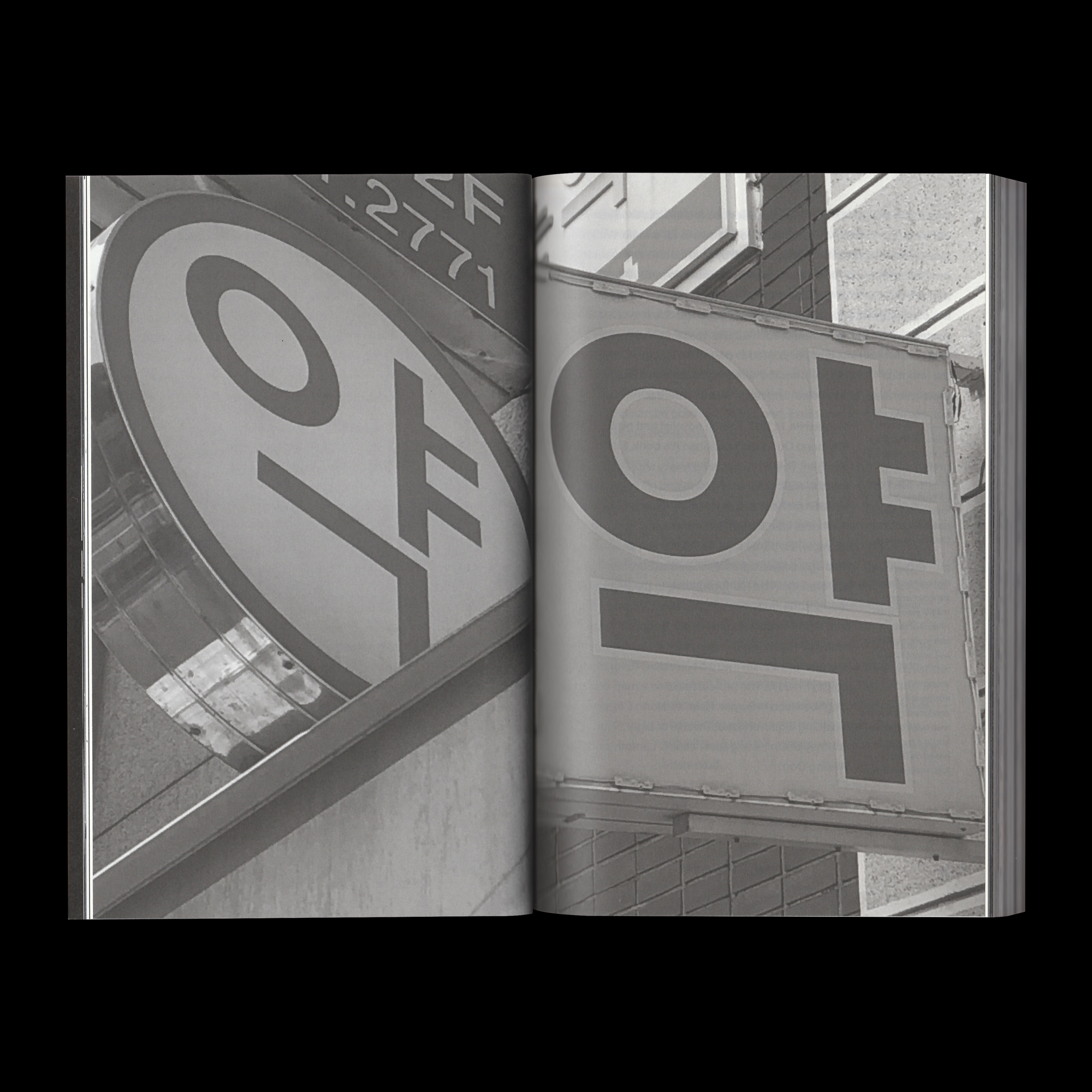
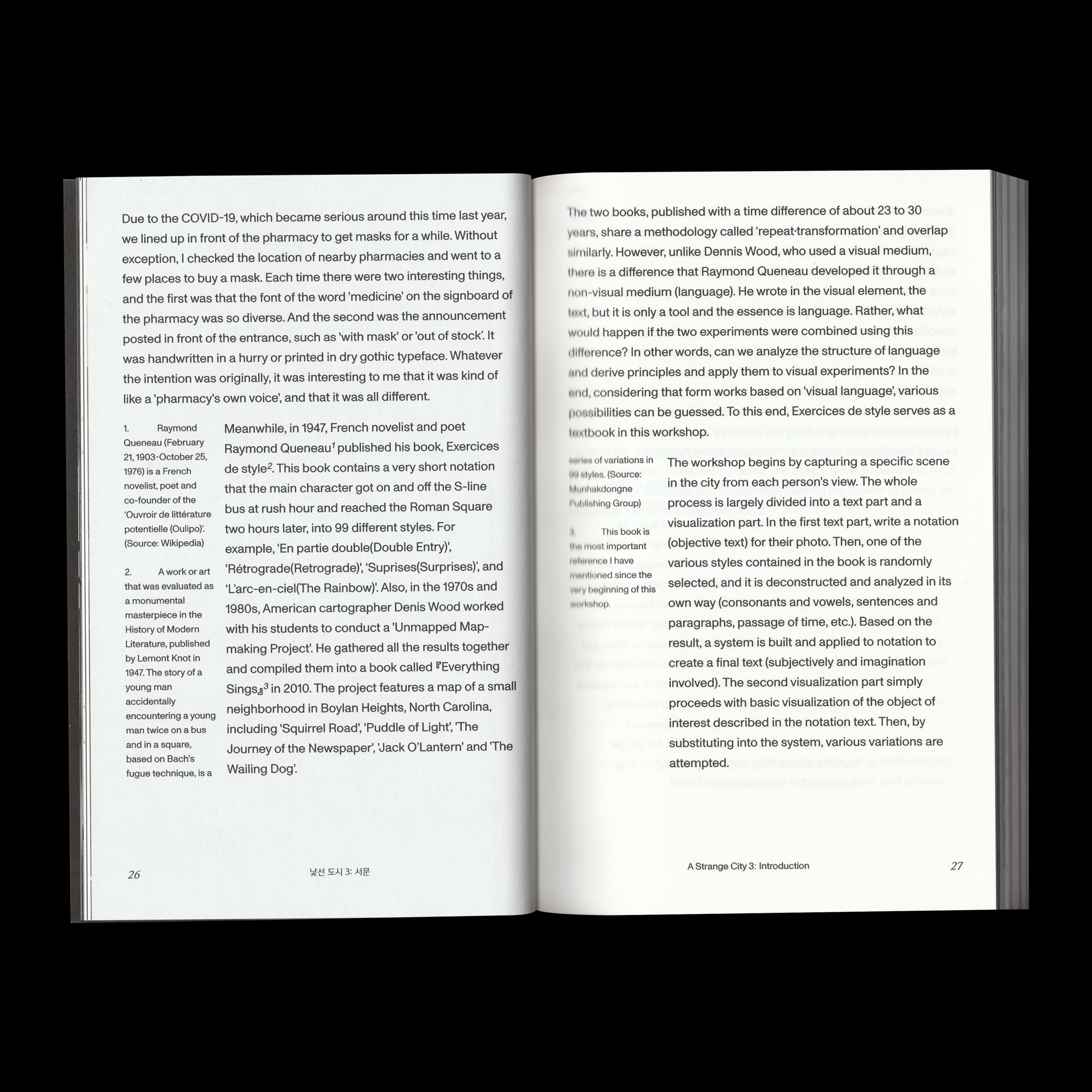
Images︎︎︎
Spine, Body (Contents, Introduction)
The two books, published with a time difference of about 23 to 30 years, share a methodology called ‘repeat·transformation’ and overlap similarly. However, unlike Dennis Wood, who used a visual medium, there is a difference that Raymond Queneau developed it through a non-visual medium (language). He wrote in the visual element, the text, but it is only a tool and the essence is language. Rather, what would happen if the two experiments were combined using this difference? In other words, can we analyze the structure of language and derive principles and apply them to visual experiments? In the end, considering that form works based on 'visual language', various possibilities can be guessed. To this end, Exercices de style serves as a textbook in this workshop.
The workshop begins by capturing a specific scene in the city from each person's view. The whole process is largely divided into a text part and a visualization part. In the first text part, write a notation (objective text) for their photo. Then, one of the various styles contained in the book is randomly selected, and it is deconstructed and analyzed in its own way (consonants and vowels, sentences and paragraphs, passage of time, etc.). Based on the result, a system is built and applied to notation to create a final text (subjectively and imagination involved). The second visualization part simply proceeds with basic visualization of the object of interest described in the notation text. Then, by substituting into the system, various variations are attempted.
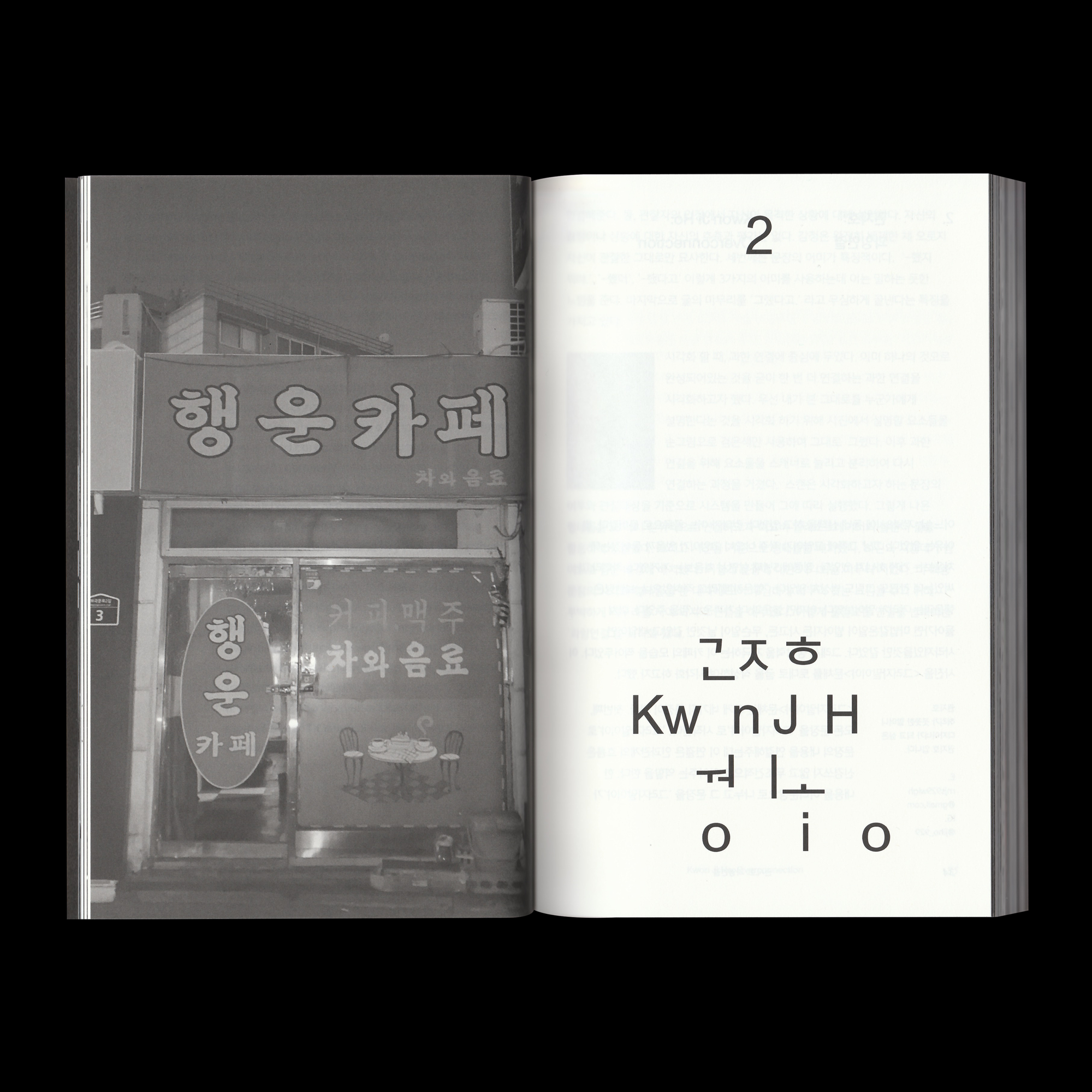
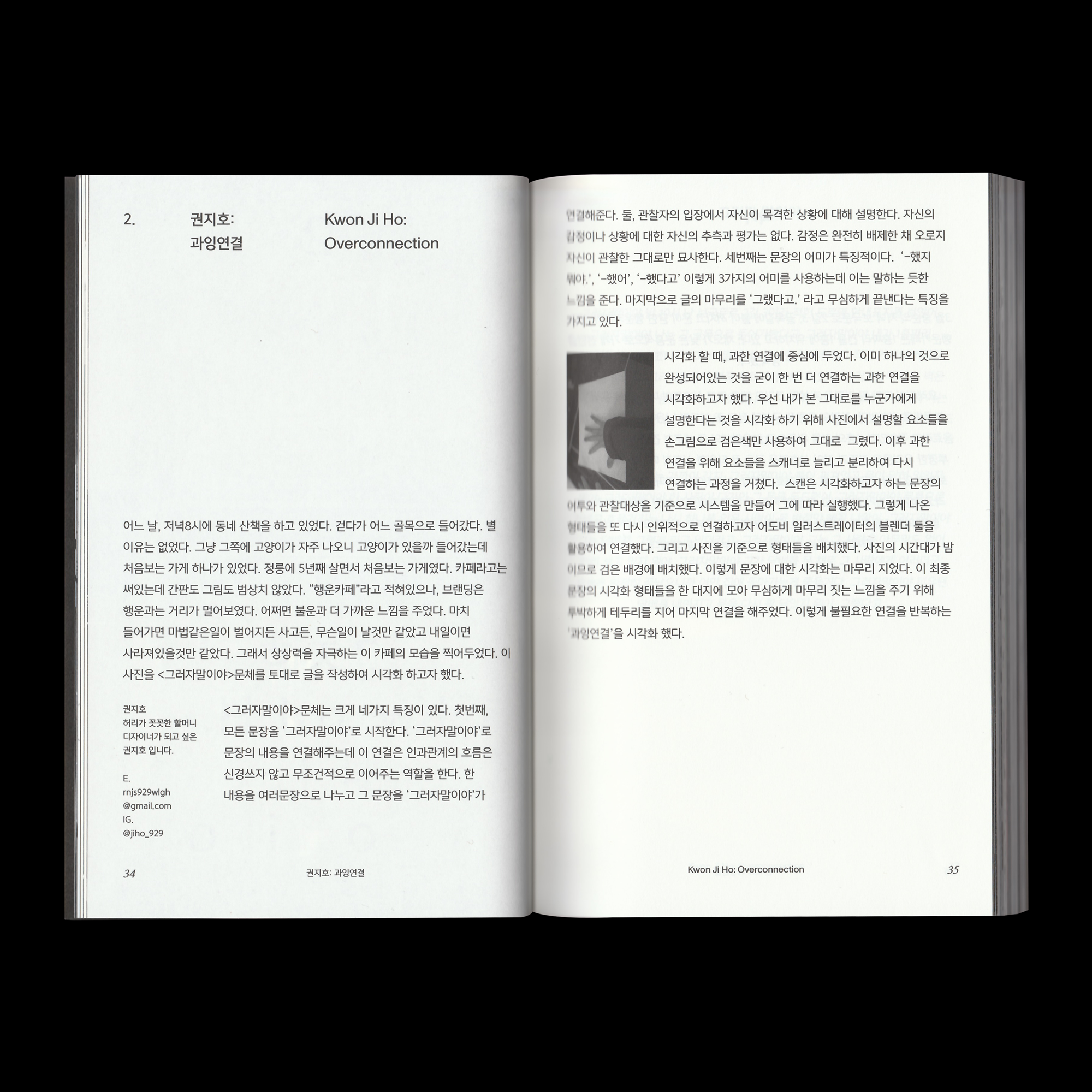

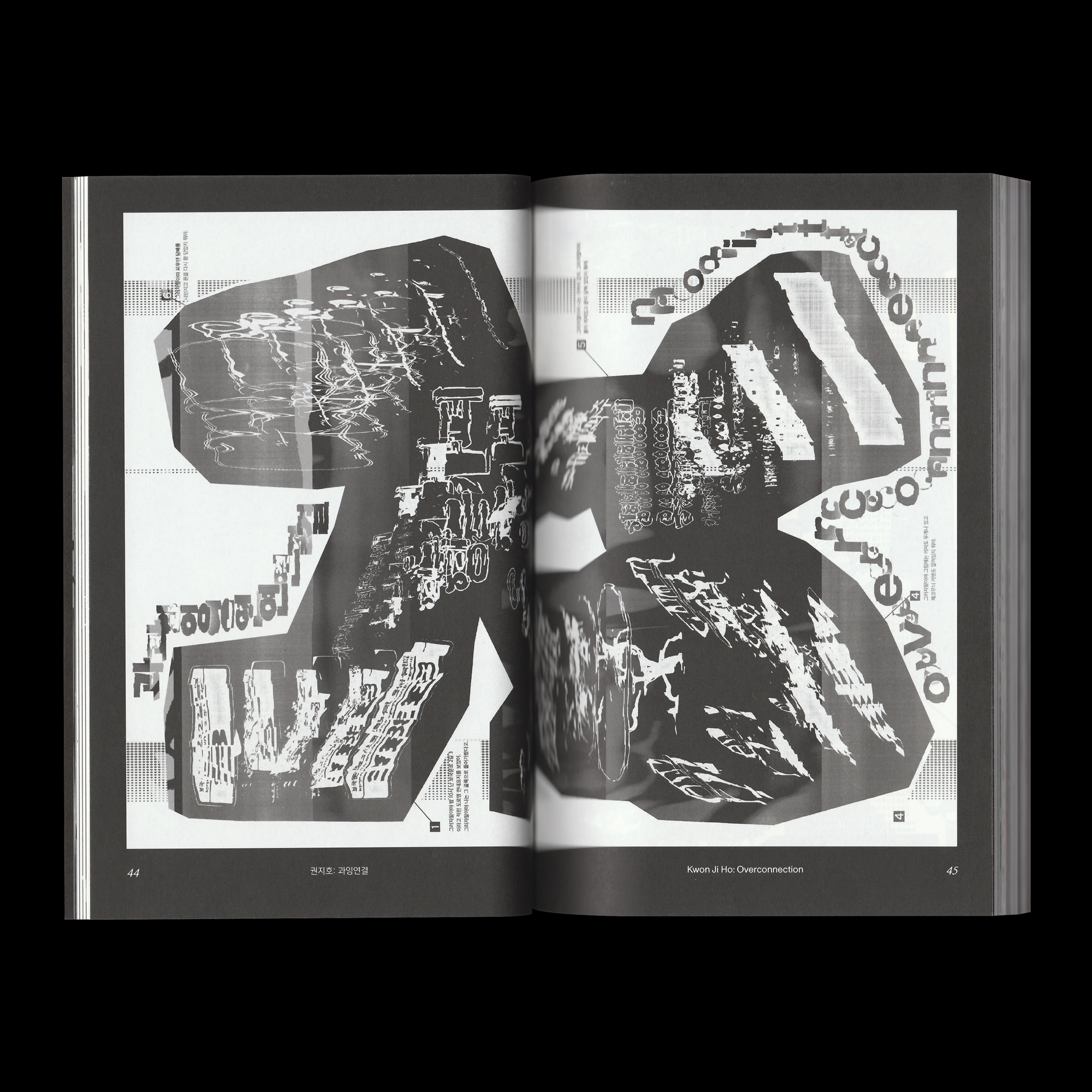
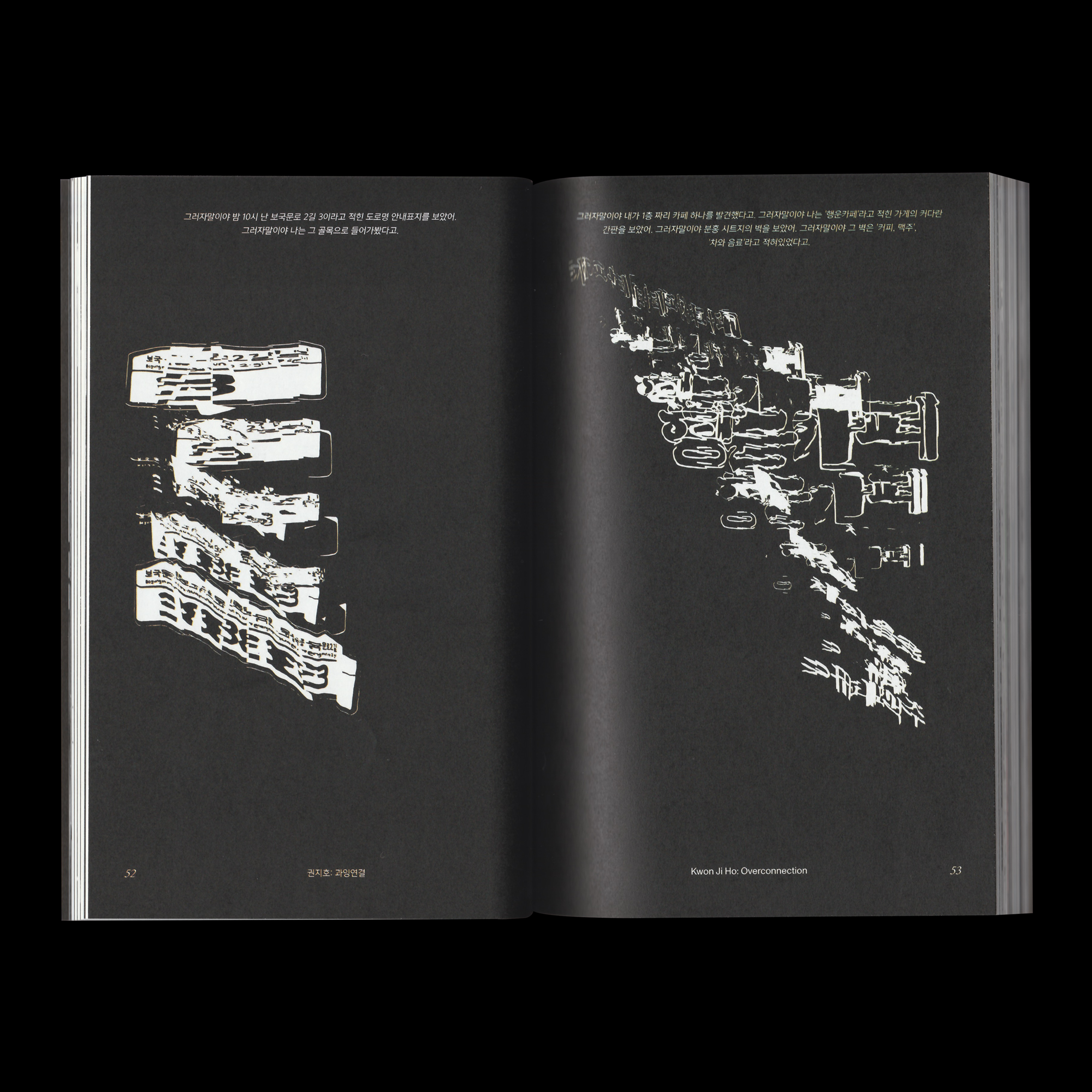
Images︎︎︎
Body (Ji Ho Kwon, Overconnection)
'Kwon Ji-ho', who discovers an old café and bar located in Jeongneung-dong, begins her work by extracting many objects that can be captured in the scene. These include illustrations of coffee tables and cups, letters and signboard, and cigarette butts that fell on the road. These objects were filtered once with a drawing with her own style, and then the last image was experimented in an unpredictable direction by applying the style of ‘Alors (You Know)’.


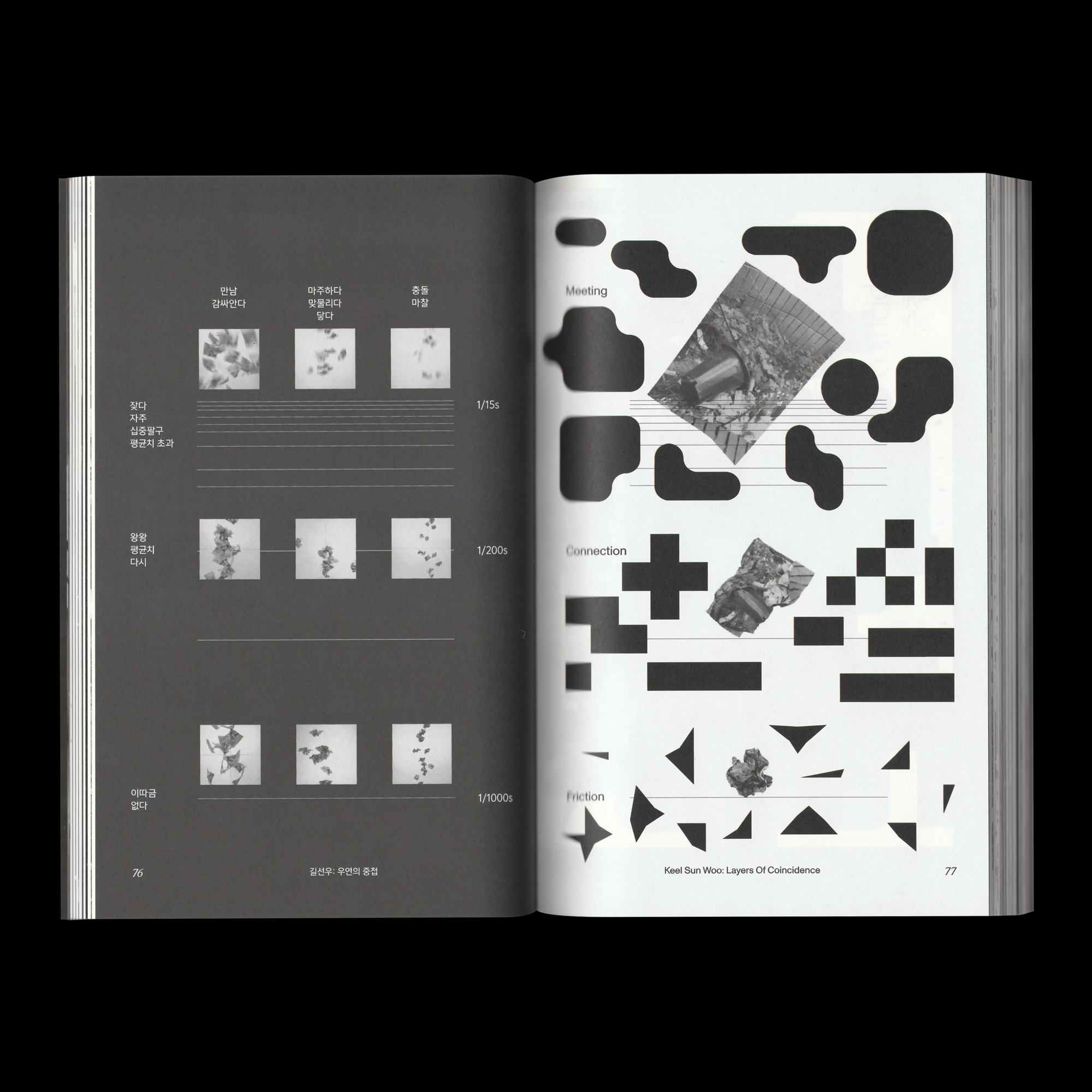


Images︎︎︎
Body (Sun Woo Keel, Layers of Coincidence)
'Keel Sun Woo', who photographed a flowerpot and a piece of styrofoam that seemed to have been irresponsibly discarded by someone, uses the scene itself as a material. By directly applying actions such as crumpling or unfolding a scene compressed in two dimensions (printed material), or by continuously photographing the scene by dropping it from the air, it seeks a visualization method for ‘Probabiliste (Probabilist)’.




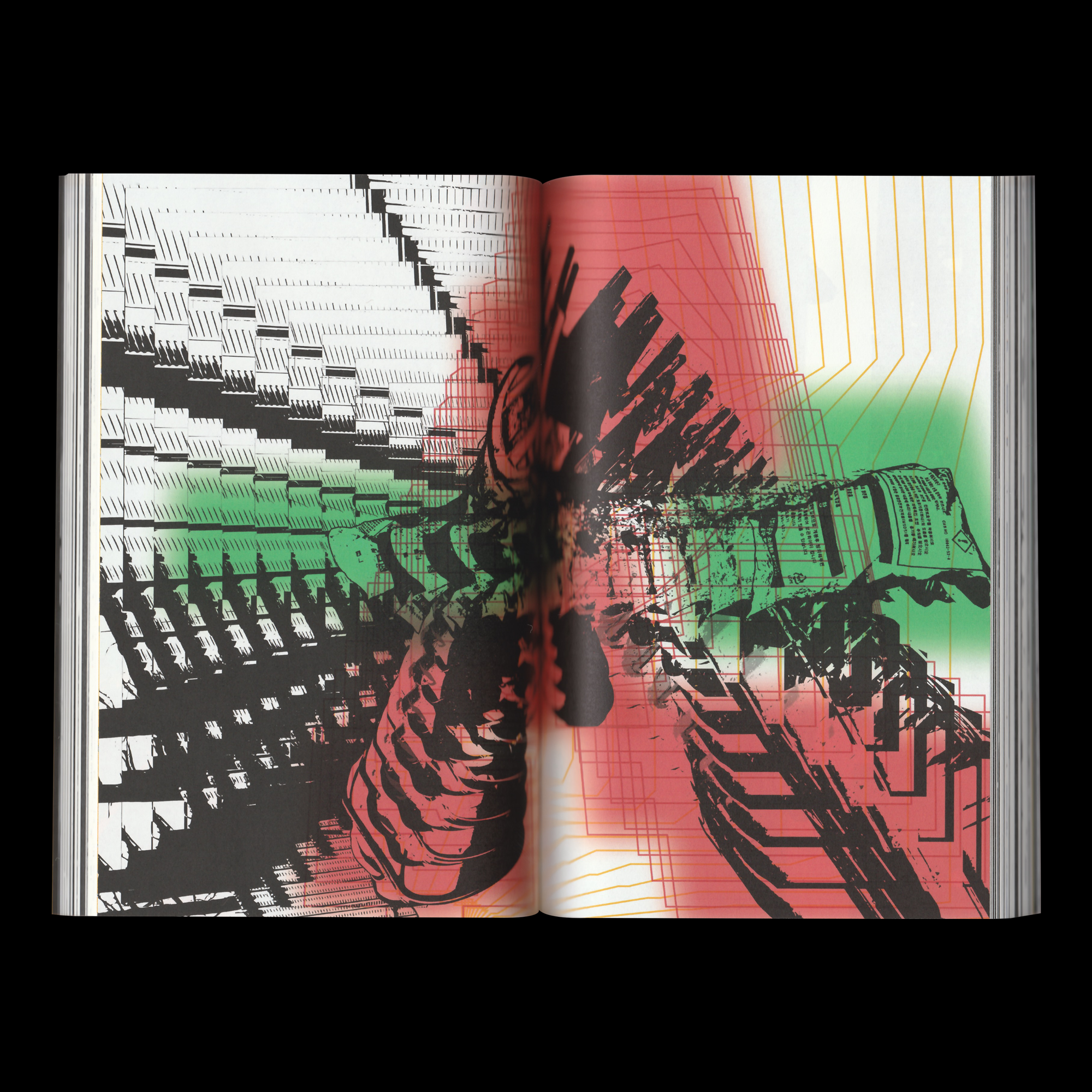
Images︎︎︎
Body (Dong Young Kim, The Continuous Faces)
'Kim Dong Young', who started working on the trash piled on one side of the park, reinterprets various relationships between trash such as broken plastic chairs, buoys, and vinyl through the style of ‘Par devant par derrière (Consequences)’. He connects this to the problem of perspective, according to the variables of time and space, he tries to reveal not only the relationship that is visible but also the relationship that is not visible.





Images︎︎︎
Body (Jun Hui Kim, The Disappearance of Pigeons But Only In The Middle)
'Kim Jun Hui’ is interested in pigeons that are common on the street. Just like his interests are evident, and various aspects related to pigeons make up the whole work. In addition to the pigeons expressed in delicate pen drawing, the system for shape transformation (‘Syncopes (Syncope)’) is also expressed in ‘bird feathers’.





Images︎︎︎
Body (Sung Eun Moon, 4 Verses 14 Lines)
'Moon Sung Eun', who looked at the manhole cover on the road like a 'cipher', conducted an experiment in which the sentence units of the ‘Sonnet (Sonnet)’ functioned as individual secret codes and eventually became a complete cipher. In order to realize this, the process of deciphering (and at the same time, it is also a process of composition) is planned by disassembling the formative features already possessed by the lid and combining them with additionally produced elements. Furthermore, by reversing the order from sentence to image, it promotes 'the possibility of an image that acts like a letter’.





Images︎︎︎
Body (Seul Gi Shin, A Vulgar City)
The townscape seen through the broken window was 'looked kind' to the eyes of 'Shin Seul Gi’ to express it metaphorically. If so, how about changing this place to be ‘Vulgaire (Cockney)’. In order to metaphorically capture the somewhat harsh nuances of the style, she explored the place herself and collected textures. The image is tuned back and forth on the axis of kindness and vulgarness, leading the viewer to create an unfamiliar sense of a neighborhood.





Images︎︎︎
Body (Han Byul Lee, It’s All Advertising)
The banner hanging in front of the apartment is just an advertisement and is destined to be replaced after the contract period has passed. ‘Lee Han Byul’ wants to look at it with a more interesting eye. What if a banner is talking to each other? What if there are the hierarchies according to the order of the posting? Imagine a virtual dialogue that goes back and forth between the unspoken beings, and gauge the tone of the letters. Suppose that the higher the rank, the more ‘Désinvolte (Casual)’, and the lower the rank, the blunt. It shows typography work using tools ranging from toothbrushes to nebulizers, nails and screws, as if fully revealing the delightful setting. Everyday life is like the accumulation of a lot of data. Perhaps the cell phone will be the biggest contributor.





Images︎︎︎
Body (Mi Sun Choi, Maker)
Anyway, ‘Choi Mi Sun’ pulls out the accumulated data over the course of a week and classifies it according to the method of ‘Ensembliste (Reactionary)’. As you follow day by day, replaced by geometric figures, she makes you wonder what kind of shape your daily life will take.
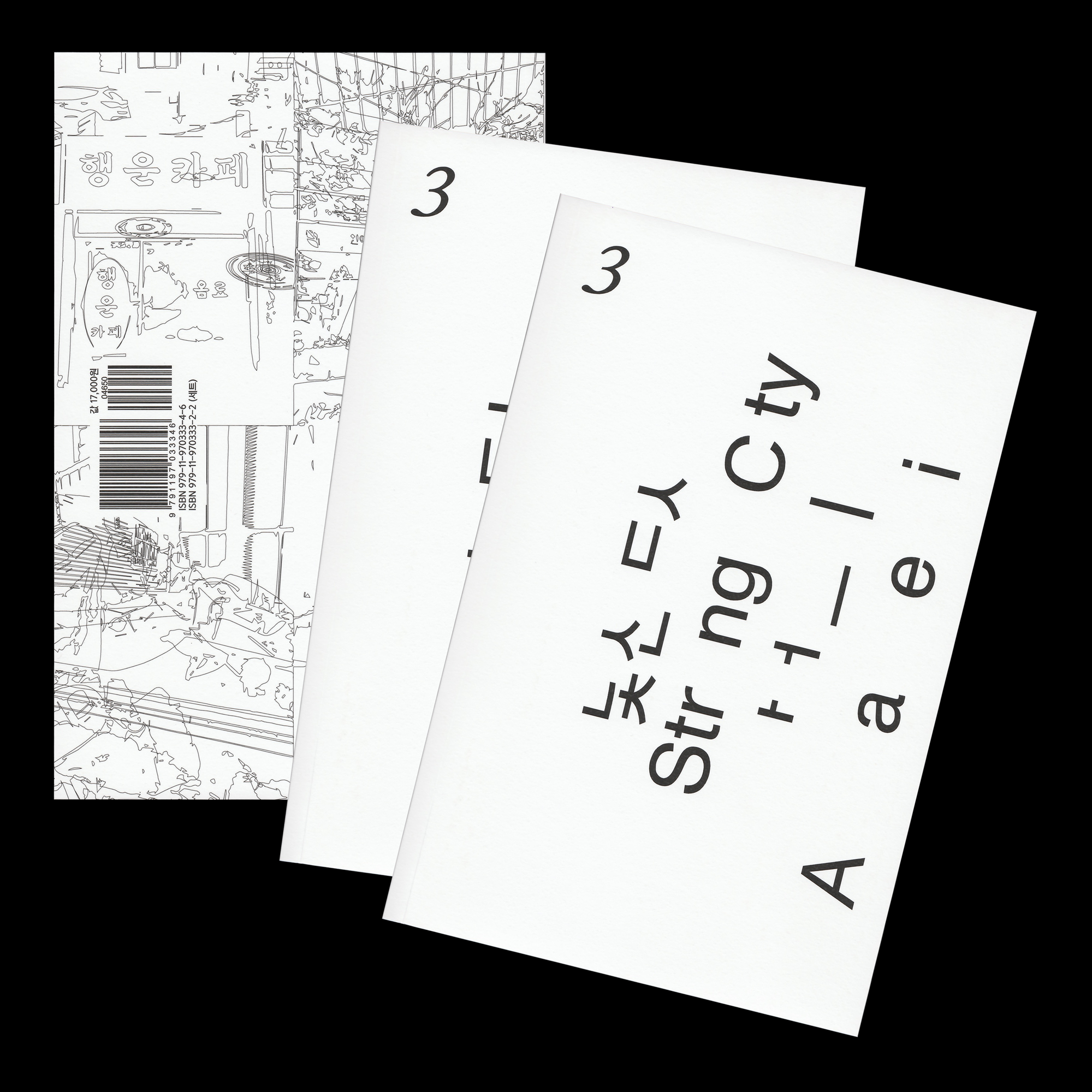
Book Cover︎︎︎
Front / Back
Eight participants present various outcomes by combining logic and subjectivity based on the system and constraints they have decided on themselves. There must be a lot to improve because they worked constrictedly while studying and working in company at the same time during a not long period of a month. However, I ask the potential readers of this book to see the pure experimental spirit and development potential contained in their work, and I try to defend for them as the planner of the workshop and designers like them. At the end of the introduction, before we get to the main part of the book, let's remind ourselves of the memory of the pharmacy I mentioned at the beginning. Perhaps the word ‘medicine’, which seems to be speaking in its own voice, is the same as Exercices de style like 'kindly, bluntly, energetically’. So what about the letters of other stores? Doesn't it seem unfamiliar to what you were familiar with?